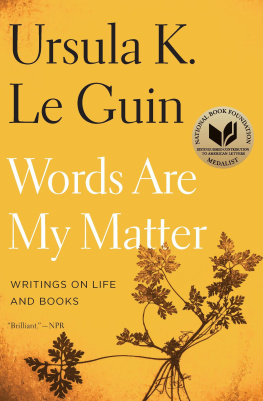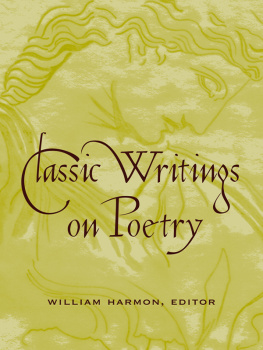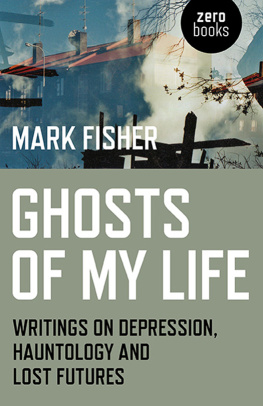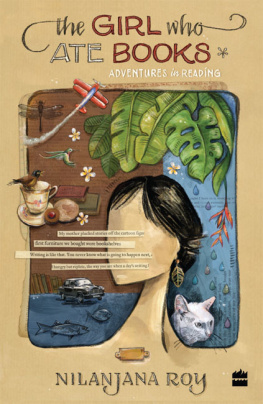READING
for
MY LIFE

ALSO BY JOHN LEONARD
Lonesome Rangers: Homeless Minds, Promised Lands, Fugitive Cultures
When the Kissing Had to Stop
Smoke and Mirrors: Violence, Television, and Other American Cultures
The Last Innocent White Man in America
Private Lives in the Imperial City
This Pen for Hire
Black Conceit
Crybaby of the Western World
Wyke Regis
The Naked Martini
READING
for
MY LIFE
WRITINGS, 19582008

John Leonard
Edited by Sue Leonard
VIKING
VIKING
Published by the Penguin Group
Penguin Group (USA) Inc., 375 Hudson Street, New York, New York 10014, U.S.A.
Penguin Group (Canada), 90 Eglinton Avenue East, Suite 700, Toronto, Ontario, Canada M4P 2Y3
(a division of Pearson Penguin Canada Inc.)
Penguin Books Ltd, 80 Strand, London WC2R 0RL, England
Penguin Ireland, 25 St Stephens Green, Dublin 2, Ireland (a division of Penguin Books Ltd)
Penguin Books Australia Ltd, 250 Camberwell Road, Camberwell, Victoria 3124, Australia
(a division of Pearson Australia Group Pty Ltd)
Penguin Books India Pvt Ltd, 11 Community Centre, Panchsheel Park, New Delhi 110 017, India
Penguin Group (NZ), 67 Apollo Drive, Rosedale, Auckland 0632, New Zealand
(a division of Pearson New Zealand Ltd)
Penguin Books (South Africa) (Pty) Ltd, 24 Sturdee Avenue, Rosebank, Johannesburg 2196,
South Africa
Penguin Books Ltd, Registered Offices: 80 Strand, London WC2R 0RL, England
First published in 2012 by Viking Penguin, a member of Penguin Group (USA) Inc.
1 3 5 7 9 10 8 6 4 2
Copyright Sue Leonard, 2012
Introduction copyright E. L. Doctorow, 2012
All rights reserved
Pages 38384 constitute an extension of this copyright page.
LIBRARY OF CONGRESS CATALOGING-IN-PUBLICATION DATA
Leonard, John, 1939-2008.
Reading for my life : writings, 1958-2008 / John Leonard; edited by Sue Leonard.
p. cm.
ISBN: 978-1-101-56100-3
I. Leonard, Sue, 1938- II. Title.
PS3562.E56R43 2012
814.54dc23 2011039564
Printed in the United States of America
Designed by Nancy Resnick
No part of this book may be reproduced, scanned, or distributed in any printed or electronic form without permission. Please do not participate in or encourage piracy of copyrighted materials in violation of the authors rights. Purchase only authorized editions.
ALWAYS LEARNING
PEARSON
For Oscar, Eli, and Tiana
to help them remember
the grandest of all grandpas;
he loved you very much
Introduction
by E. L. Doctorow
John Leonard started out as a novelist but was diverted, presumably under the exigencies of making a living, his brilliance as a freelance writer being quickly recognized by editors and publishers, so that he found himself at a precocious age writing first for the National Review, then as daily book reviewer of the New York Times and quickly then as editor of the Times Book Review. Perhaps he recognized about himself that his creativity was not of the burrowing kind of the novelist, who lives patiently for years with a set of images and torturously realized intentions in the production of a novel. He was from the beginning a quick study, a wunderkind, writing even as a nineteen-year-old sophomore for the Harvard Crimson these already typically referential Leonardian lines from a piece he called The Cambridge Scene: Did not Eliot return to dead cultures, ancient languages, and the Legend of the Fisher King? Did not Yeats sustain himself on the Irish folklore? Did not Lawrence traipse across continents to Mexico, seeking the meaning of the Aztecs, the wisdom of primitive man?... Yours is a motel civilization... Your art makes no sense and your music is too loud. No wonder that he abandoned Harvard for the University of California at Berkeley. But in the Cold War fifties, he was to touch down in New York, and his youthful longing for whatever came before, whether the authenticity of folklore or the romantic radicalism of fin de sicle Greenwich Village (There used to be a time when John Reed and Lincoln Steffens lived at the same Village address... No more. The Village today is populated by the smug, the self-conscious, and the literary sycophants), was, in a sense, the young mans common enough generalized anxiety of influencehis fear that he and his era could never match the grand human proportions of what had been previously conceived. Or was it what he imagined had been conceivedhis idealistic sense of a human greatness that he could never attribute to what he found in the world around him? He would all his life be an avowed skeptic but with a religious sensibility that would make of him a celebrant of the moments when he did glimpse something of the full expression of human capacity. And perhaps, in a kind of quest, he was to wade right in, immersing himself totally in what imaginative work his life and times had to offer. He does grow up in the pages of this volume, his idealism reconfigured as a very sharp, keen wit that can with authority assess books and ideas for what they are.
If you consider this collection of John Leonards essays and reviews as a lifelong accounting, you will have a good idea of what went on of significance in the latter half of the American twentieth century and the first years of the twenty-first. For though this collection is called Reading for My Life, and though reviewing literary work was John Leonards calling, it did not box him in. He was a born freelance, going wherever that tenuous life led him, from the monuments of high culture that he was inspired to celebrate, to the commodities of the low, from which he would take gleanings where most of us would find none. It is difficult to understand how, with his immense reading, and the sustenance his mind sought, he could have sat himself down year after year to examine the products of television. Yet here he is, considering what it meant when sitcom settings moved from the kitchen to the living room, and the family characters sitting on the living room couch, and presumably watching their television, seemed to be watching him. Or here he is, considering what these programs said about fatherhood and motherhood in America. He understood the presumptive sociology in the arrays of sitcoms and to what degree they reflected American domestic reality or in fact helped to shape it.
But the novel was to John Leonard the presiding artalways in its intentions, if only occasionally in its realization, a major act of the culture. He says in the piece that gives title to this volume, [P]opular culture is where we go to talk to and agree with one another; to simplify ourselves; to find our herd.... Whereas books are where we go alone to complicate ourselves. He is an excited first responder when the work is Garca Mrquezs One Hundred Years of Solitude. You emerge from this marvelous novel as if from a dream, the mind on fire.... So richly realized are the Buendas that they invite comparison with the Karamazovs and Sartorises.... One book reminding him of another is a Leonardian characteristic, as if books are antiphonal calls and responses. It is in his most exultant reviews that his words tumble forth in catalogues of ascription, as he tries to convey as much of the book as he can short of quoting the thing in its entirety: Family chronicle, then, and political tour de force, and metaphysical romp, and, intentionally, a cathedral of words, perceptions, and details, he says of the Garca Mrquez, [amounting] to the declaration of a state of mind: solitude being ones admission of ones own mortality and ones discovery that the terrible apprehension is itself mortal, dies with you, must be rediscovered and forgotten again, endlessly.
Next page









